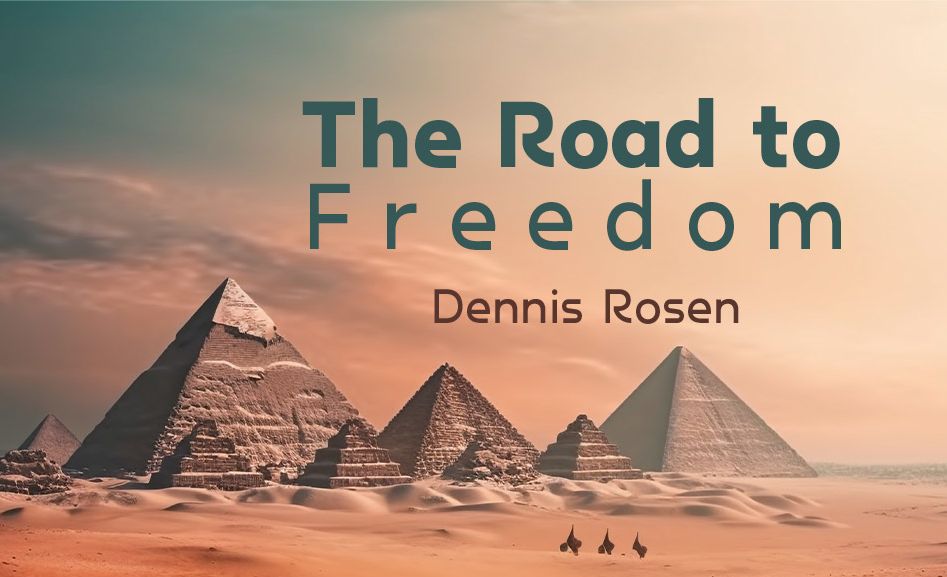
Shevi’i shel Pesach: Inner Song of the Soul
The Seventh Day of Pesach - Precisely because of its loftiness, praising Hashem cannot be limited. It reflects a deeper and more innate aspect of our essence, an awakening of the soul’s inner song.

Translated and abridged by Rabbi Chanan Morrison
Shevi’i shel Pesach: The Seventh Day of Pesach
The Talmud in Sotah 30b portrays Shirat HaYam, the Israelites’ song of thanksgiving and praise at their miraculous deliverance at the Red Sea, as a song of children and babies:
“When the Israelites exited the sea, they wanted to sing. How did they sing? A young child was sitting on his mother’s lap and a baby was nursing at his mother’s breast. When they witnessed the Shechinah, the young child lifted his neck and the baby stopped his nursing, and they sang out, “This is my God and I will honor Him” (Ex. 15:2).”
Why did the Sages describe Shirat HaYam as a song breaking forth spontaneously from the mouths of babes?
Knowledge and Honor
“Kri’at Yam Suf,” when the Red Sea split so that Israel could pass through to freedom, was the culmination of the Exodus from Egypt. A careful examination of the text, however, indicates that the Exodus and the Splitting the Sea had different objectives. The Ten Plagues and the Exodus were meant to ensure that “Egypt will know that I am God” (Ex. 7:5). The goal was knowledge — through these wonders and miracles the world would learn to acknowledge God’s existence and recognize His control over the universe.
As the Israelites crossed the Red Sea, however, God announced, “I will be honored through Pharaoh and all his armies” (Ex. 14:17). The miracle at the sea aimed for a higher goal — not just knowing God, but honoring Him. Not yedi’at Hashem, but kevod Hashem.
From the Throat
The obligation to honor God is learned from Proverbs, “Honor God from your wealth” (3:9). Midrash  Tanchuma explains that one may honor God not only with monetary wealth, but also with other gifts, including song. A person blessed with a pleasant voice should lead the communal prayers. Rashi explains that the word mei-honecha (‘from your wealth’), may be read as mei-gronecha — ‘from your throat.’
Tanchuma explains that one may honor God not only with monetary wealth, but also with other gifts, including song. A person blessed with a pleasant voice should lead the communal prayers. Rashi explains that the word mei-honecha (‘from your wealth’), may be read as mei-gronecha — ‘from your throat.’
This leads us to a deeper understanding of what it means to honor God. Knowledge and wisdom are a function of our intellectual faculties, but kavod comes from a deeper, more visceral part of our existence. Like the throat, it is tied to our essential life-force — “If one’s neck is removed, one cannot live” (Midrash Shir HaShirim 4:6).
For this reason, the Midrash describes Shirat HaYam as a song that burst forth out of the mouths of babes. The song at the Red Sea was a natural expression of the Israelites’ innate sense of kevod Hashem. The song emanated from their inner yearnings for God, even before they had proper knowledge of God, when they were like young children.
Beyond Set Measures
The Talmud teaches that one reciting the Shema prayer should mention both the Exodus and the Splitting of the Sea (Jer. Talmud Berachot 1:6). The commentaries explain that both are mentioned since the redemption from Egypt began with the plagues and was completed with the miracle at the sea. And yet the Sages taught a surprising rule: one who forgot to mention the Exodus must go back and recite the Shema again. But one who forgot to mention the Splitting the Sea does not need to go back (Shemot Rabbah 23). If the Splitting of the Sea was the consummation of the Exodus, why is it not also a mandatory part of the prayers?
We may understand the dichotomy between knowledge and honor by contrasting ordinary mitzvah-performance with hiddur mitzvah, the elaboration and beautification of a mitzvah. Every mitzvah has specific parameters and minimum requirements in order to fulfill the mitzvah. Hiddur mitzvah means going beyond those fixed measurements. Hiddur mitzvah is an expression of limitless kevod Hashem, a reflection of our inner aesthetic side. It is learned from the poetic Song at the Sea, “This is my God and I will honor (beautify) Him.”
This enables us to understand why one who failed to mention the Splitting of the Sea does not repeat his prayers. Honoring God, unlike knowledge and wisdom, is not defined within a fixed framework. Precisely because of its loftiness, kevod Hashem cannot be bound by limits and measures. It reflects a deeper and more innate aspect of our essence, an awakening of the soul’s inner song.
(Adapted from Shemuot HaRe’iyah (Beshalach 5630), quoted in Peninei HaRe’iyah pp. 143-145.)
* * *
Rabbi Chanan Morrison of Mitzpeh Yericho runs http://ravkooktorah.org/, a website dedicated to presenting the Torah commentary of Rabbi Avraham Yitzchak HaCohen Kook, first Chief Rabbi of Eretz Yisrael, to the English-speaking community. He is also the author of Gold from the Land of Israel (Urim Publications, 2006).












Tell us what you think!
Thank you for your comment!
It will be published after approval by the Editor.